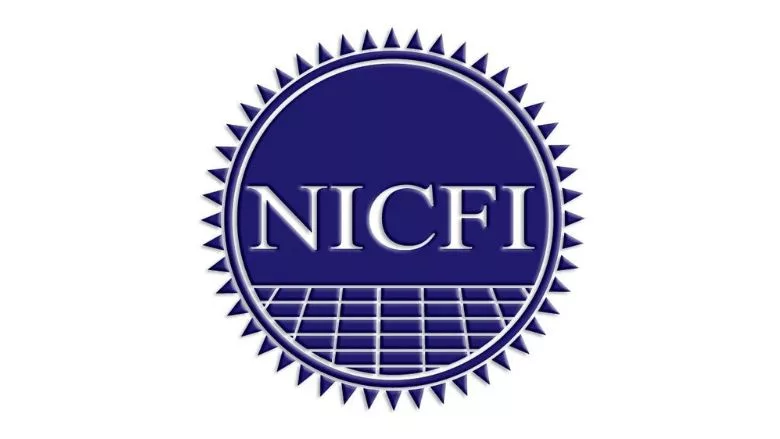Flooring Inspector Organization Pushes for Industry Unity Amid Training Concerns

Photo: NICFI.
The National Institute of Certified Flooring Inspectors (NICFI) is spearheading an effort to unite all flooring inspection schools under common educational standards, driven by growing concerns about inadequately trained inspectors entering the field. NICFI has been hosting industry-wide meetings with independent inspection organizations and industry stakeholders to discuss report complaint protocols, maintaining independent and impartial inspections, high-quality education, and preserving current teaching methods while implementing standardized curriculum.
“We’re in the early phases of it, but we have agreement in principle from all of the schools,” said John Paro, past president, NICFI.
The participating schools include Certified Flooring Inspectors University (CFIU), Flooring Inspectors Educational Guild, The Institute for Floor Covering Inspectors International (IFCII), Inspector Training Services (ITS), The Institute of Inspection, Cleaning and Restoration Certification (IICRC), and the National Wood Flooring Association (NWFA).
"NICFI [has the ability] to gather all the other schools and say, ‘What are we doing to enhance education; what are we doing to better inspectors; and how can we better the industry,’” said Jessica Violand-Bruno, VP, NICFI. “There's no other organization to do this. We are it.”
The Education Divide
The contrast between traditional and modern training approaches has created significant tension within the industry. Veteran inspectors recall when carpet inspection alone required four to five days of in-person training, followed by prerequisites and peer-reviewed probationary periods.
Mark Violand, NICFI member and chair of the IICRC's S800 Committee for Professional Inspection of Textile Floor Coverings, described the evolution, “The senior inspector class that I took, first I had to take two prerequisites, the Carpet Cleaning Technician class and the Carpet Repair and Reinstallation Technician class. Then, the Senior Carpet Inspector class was five days and then a day to take the exam."
Today, some schools offer certification in carpet, laminate, wood, tile, and vinyl flooring within a single week. More concerning to industry veterans is the emergence of online-only certification programs.
“We might have someone who has no experience with floor covering coming in, and they will receive a certificate that certifies them for carpet, for hard surface, for hardwood, ceramic, and resilient, never having touched the products, and only attending an online class,” Paro said.
The Human Cost
The consequences of inadequate training extend beyond industry reputation to real-world impact on consumers, dealers, and installers. Bill Zoetvelt, NICFI member and owner, All American Flooring Solutions, shared a recent experience with a poorly prepared inspector: “‘I was unable to get a hold of the guy that runs the heating and air conditioning. I was unable to get a hold of the installer. Therefore, it's the installer's fault.’ That was the sum of his report.”
Such incidents highlight the ripple effects of inadequate training. When inspectors make incorrect determinations, someone still pays—whether it's consumers buying new floors, dealers absorbing costs, or installers filing insurance claims.
The Path Forward
In a recent meeting, NICFI leadership, membership and attendees explored various ideas for establishing standards across the schools, including:
• Requiring in-person attendance for initial certification
• Recognizing continuing education credits from other schools
• Developing common curriculum checklists based on industry standards
• Establishing best practices for turning out competent inspectors
“We're looking for that common agreement from a school that turns out a good inspector,” Paro said. "Here's what it will cover; these are the minimum things it will cover; and these are the best or least accepted practices of a school.”
The organization emphasizes that schools can maintain their unique teaching approaches while adhering to core standards. “We don't need to reinvent the wheel," Zoetvelt said. "We just have to have six different schools that teach maybe a different way to inspect the wheel, and none of it's inaccurate—it's all accurate.”
Industry Experience Matters
The NICFI members advocate for inspectors to have substantial industry experience before entering the field. Ideally, veteran inspectors come from backgrounds in installation, sales, or cleaning, with at least five years of hands-on experience.
“If you don't have the installation background, you don't have a cleaning background, you don't have that type of thing, going into those [classes] and being given very basic information and then saying, 'Here, become an inspector,' sometimes does a disservice to the industry," said Violand-Bruno.
The Mission: “Getting It Right”
When asked about the ultimate goal, Violand-Bruno summed it up: “Getting it right—uniting and elevating the inspection industry.”
The organization aims to change the narrative around the inspector who denies claims, focusing instead on proper education and industry collaboration.
Looking Ahead
The initiative represents a critical juncture for the flooring inspection industry. As manufacturers increasingly turn to AI for minor claims and the industry becomes more specialized, the need for highly trained, competent inspectors becomes even more crucial.
“Our take is we need to upgrade our reputation as an industry,” Paro said. “This is the track that we think is the right one right now—to focus on education on the front end.”
Looking for a reprint of this article?
From high-res PDFs to custom plaques, order your copy today!




